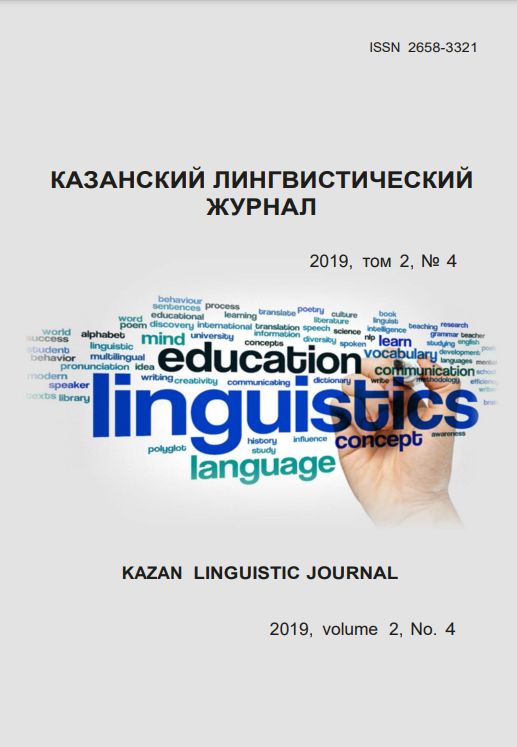About the use of e-learning technologies in teaching foreign languages
Keywords:
higher education, e-education, e-education models, modern educational technologies, project form of educationAbstract
The relevance of the study is due to a gradual process of digitization of higher education in Russia and abroad. This study presents leading trends and models of e-education. The conclusion is made about the prospect of the implementation of the network education model in the Russian higher school. Using the example of one European (German) and one Oriental (Chinese) language, we analyzed some digital technologies used in foreign language teaching, particularly project activities.
References
Литература
Айдрус Ирина Ахмед Зейн, Асмятуллин Р.Р. Мировой опыт использования технологий дистанционного образования // Высшее образование в России. М. 2015. С. 139 – 145.
李欣 远程教育技术在对外汉语教学的应用 (Ли Синь Использование технологий дистанционного образования в преподавании китайского языка как иностранного) // 中国电化教育 (Образовательные технологии в Китае). 2016. С.92– 98.
Патарaкин Е.Д. Совместная сетевая деятельность и поддерживающая ее учебная аналитика/Е.Д. Патаркин// Высшее образование в России. М. 2015.
№5. С. 145– 153.
Слабышева А.В., Шаламова Н.А. Практика использования компьютерных средств обучения при обучении студентов факультета «туризм» немецкому языку/А.В.Слабышева, Н.А. Шаламова// Вестник высшей школы Alma mater. 2015. №5. С. 73–75.
Сысоев, П.В. Перспективы и проблемы реализации сетевых образовательных программ / П.В. Сысоев // Язык и культура. Томск, 2015. С.116–123.
国内网络教育发展现状 (Развитие электронного образования в Китае сегодня) [Электронный ресурс] // Режим доступа: http://www.chinabgao.com/k/wljyxy/31490.html. (Дата обращения:27.01.2019)
References
Aidrous, Irina, Asmyatullin, Ravil R. (2015). Mirovoy opyt ispol’zovaniya tekhnologiy distantsionnogo obrazovaniya [World experience in usage of distance learning technologies] Visshee obrazovaniye v Rosii. Moskva. T. 5. S. 139 – 145. (in Russian)
Li, Xin. (2016). Yuancheng jiaoyu jishu zai duiwai hanyu jiaoxue de yinyong yanjiu [Study on Application of Distance Educational Technology in The Teaching of Chinese] // Zhongguo dianhua jiaoyu. China Edicational Technology. Vol. 3. Pp.92–98. (In Chinese)
Patarakin, Evgeney D. (2015). Sovmestnaya setevaya deyatel’nost’ i podderzhivayushchaya yeye uchenbnaya analitika [Learning analytic to facilitate group network collaboration] // Visshee obrazovaniye v Rosii. Moskva. T.5. S. 145–153. (In Russian)
Slabesheva, A.V., Shalamova, N.A. Praktika ispol’zovaniya komp’yuternych sredstv obucheniya pri obuchenii studentov fakul’teta “turizm” nemetskomu jazyku [The practice of using computer learning tools in teaching students of the faculty
of "tourism" to the German language] // Vestnik Vysshey Shkoly – High School Herald, Moscow,2015.Vol.5. Pp. 73–75 (In Russian)
Sysyoev, P.V. (2015). Perspectivy i problemy realiztsii setevykh obrazovatel’nykh programm [Perspective and problems of the implementation of the network education programs] // Jazyk i Kul’tura, Tomsk. S. 116–123. (In Russian)
Guonei wangluo jiaoyu fazhan xianzhuang [Current situation of China Online Education Development] // URL: http://www.chinabgao.com/k/wljyxy/31490.html/ (accessed: 27.01.2019) (in Chinese)






